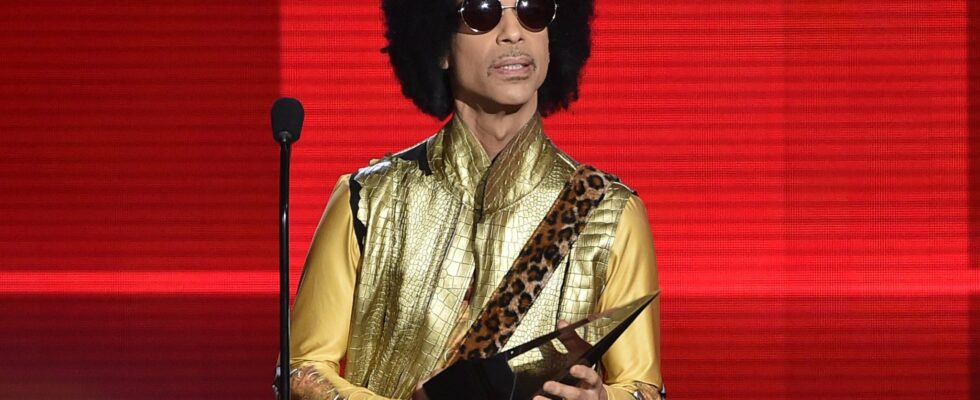Until now, Nick Hornby had never been seen as a disciple of Plutarch. We knew he was especially a fan of football and pop culture. And now, at the age of 67 (that doesn’t make us any younger), the Arsenal supporter follows in the wake of the author of the Parallel lives. With this difference that it brings together not a Greek and a Roman, but a Briton (Charles Dickens) and an American (Prince Rogers Nelson, known as “Prince”). On paper, we laugh under our breath. And why not a book questioning a hypothetical twinning between Saint Teresa of Avila and Madonna? Let’s leave our sarcasm aside: from the first pages of Dickens & Prince, Nick Hornby weaves a fascinating relationship between the two men.
Respectively born in 1812 and 1958, they suffered from poverty. At the age of 12, young Dickens was separated from his parents (incarcerated in debtors’ prison) and placed in a boarding house. He was then sent to work in a shoe polish and dye factory – a trauma that would inspire him lastingly. Prince’s childhood is more vague: having invented himself, like any dandy, he always concealed the years preceding his fame. It is believed that he was epileptic and abused by his stepfather, then lived with an aunt, before returning to his father, who kicked him out after an argument. Prince, 12, finds refuge with a friend’s parents, who put him up in a basement. A Dickensian adolescence…
Revengeful after these difficult youths, both break through at 24: Dickens publishes The Posthumous Papers of the Pickwick Club and Prince comes out 1999. A year later, they followed up with Oliver Twist And Purple Rain. For the multi-instrumentalist from Minneapolis (capable of producing a record alone, playing everything), this is not the time to twiddle your thumbs. In a few months, the funky guitarist falsetto androgynous aligns the vertices: Around the World in a Day, Parade and the double album Sign o’ the Times. The novelist and popstar are distinguished by prolific productivity. Hornby notes that, in 1986, Prince recorded around a hundred songs. Just as Dickens could move forward on several novels at the same time, Prince was working on a whole bunch of record projects simultaneously. Have they consumed their health on the altar of artistic creation? Possible, when we know that they will die at 57 for Prince and at 58 for Dickens – one more (almost) common point.
These strange similarities
Their family lives differ in appearance: Dickens was married with ten children; Prince was never a patriarch. But Dickens ended up leaving his legitimate wife for an 18-year-old girl – and that’s how he joins Prince, who collected adventures all his life. Rather than dwelling on morals, let’s talk shop. The Posthumous Papers of the Pickwick Club, which appear in monthly serials, sell 40,000 copies per month. Hornby says that, because of the financial crisis of the early 1830s, the book was in crisis (so this is nothing new!). Dickens adapted to a method of distribution that worked, even if it required him to write hard. Buoyed by the beginnings of MTV, Prince was also able to reach a popular audience. In 1986, he built his own studio, Paisley Park, at his home in Minnesota (which cost him the tidy sum of $2.5 million per month in maintenance). It will experience its peak there, then its decline, and will have to renew itself once again.
We arrive at the most fascinating parallel established by Hornby between the two geniuses. Victim of plagiarists, such as Edward Lloyd, and pirate editions, Dickens went to court and then ended up embarking on public reading tours which proved more remunerative than his books – real achievements according to his contemporaries. Likewise, cheated but tied up by his record company, Warner Bros., Prince began a legal battle that would last for years – and undermine him. He will gradually understand that, as albums no longer sell as before, he must return to the stage. He will shine as much as Dickens. Upon arrival, these two bulimics who came into conflict with the industry in which they operated left behind monumental works. It is estimated that Dickens’s novels total 4 million words. As for Prince, he had put aside between 5,000 and 8,000 unreleased songs. All that remains is to sort and listen to everything. Will we one day discover an ode to Dickens there?
Dickens & Prince. A very special genius, by Nick Hornby. Trans. from English (UK) by Christine Barbaste. Stock, 173 p., €19.90.
.
